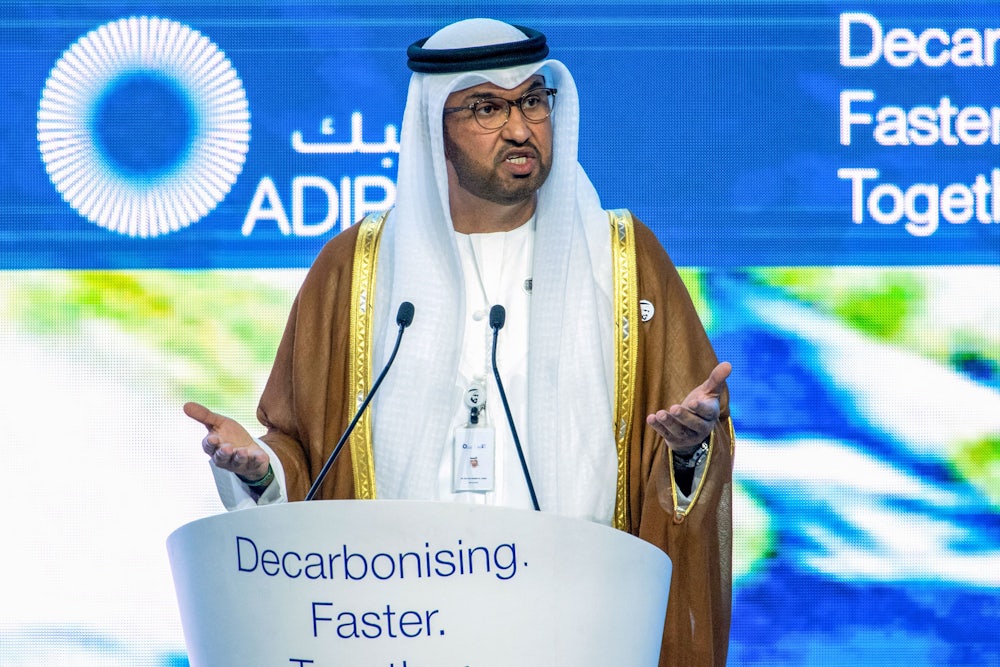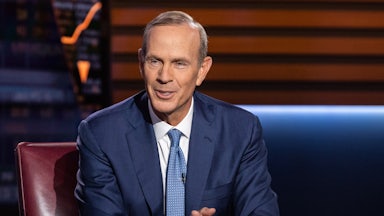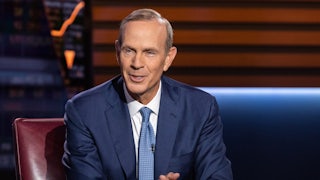At the end of this month, world leaders will converge in Dubai for this year’s U.N. climate talks, COP 28. “COP” stands for “conference of parties”—meaning countries who are signatories to the U.N. Framework Convention on Climate Change. Delegates from those countries are ostensibly the only people allowed to actually make decisions there. But as new research shows, that isn’t really how it works.
Since COP9, held in 2003, the UNFCCC has granted 945 badges to fossil fuel representatives who disclosed their corporate affiliations to attend those talks; some delegates, that is, attended multiple years in a row on different badges. Staff from just five companies—ExxonMobil, Chevron, Shell, BP, and TotalEnergies—have received 267 passes. According to new research published Tuesday by a coalition of climate groups called Kick Big Polluters Out, the real numbers could be far higher. Representatives of trade associations that boost fossil fuel interests—often including fossil fuel industry employees who weren’t required to disclose those affiliations—have been granted 6,581 badges.
While corporate representatives can’t technically attend in their professional capacity, many have been granted the “observer” badges typically given to nongovernmental organizations or even badges reserved for country delegations. TotalEnergies CEO Patrick Pouyanné and several other top executives at the company attended last year’s talks on badges granted to NGOs, including the World Business Council for Sustainable Development. Then–BP CEO Bernard Looney was listed on the national delegation of Mauritania, where the company has major investments. The watchdog group Global Witness found that 25 percent more fossil fuel lobbyists attended talks in 2022 than did the year prior.
Many employees of fossil fuel companies have attended via the International Emissions Trading Association, a trade association that regularly hosts a pavilion on the conferences’ trade show–esque main floor, alongside countries and NGOs. IETA has received 2,769 passes over the last 20 years.
This year, conflicts of interest will be harder to ignore. That’s thanks in part to the fact that—after years of pressure over fossil fuel firms’ influence on the talks—U.N. officials will for the first time require COP28 attendees to disclose their employer affiliations as part of the registration process. But fossil fuel influence will be more out in the open in other ways, too: COP 28 president Dr. Sultan Al Jaber is also CEO of the Abu Dhabi National Oil Company, or ADNOC.
Fossil fuels, that is, are as prominent as ever in the climate talks that should theoretically be plotting their demise. The Production Gap Report, released earlier this month by the U.N. Environment Program and several nonprofit research outfits, finds that the world is now on track to produce 110 percent more fossil fuels in 2030 than is consistent with limiting warming to 1.5 degrees Celsius (2.7 degrees Fahrenheit), and 69 percent more than would be consistent with limiting warming to two degrees Celsius.
The company Al Jaber runs is particularly bad on this front: An analysis by the German nonprofit Urgewald finds that ADNOC’s $150 billion plans to continue expanding oil and gas production are more out of step with plans to reach 1.5 degrees Celsius than those of any other driller on earth. While the company has talked up its plan to capture emissions from these operations, planned gas expansions would produce 20 times as much carbon dioxide as even its ambitious goal to draw down 1.5 million tons of CO2 per year. ADNOC has denied the charges, telling The Guardian that the “data and assumptions” in Urgewald’s report “are incorrect and misleading.”
It’s worth understanding how exactly fossil fuel companies tend to influence U.N. climate talks. Rather than stalking the halls peddling climate-denial talking points or making a full-throated case for continued fossil fuel expansion, industry representatives and trade associations tend to obfuscate the harms of fossil fuel production by heralding the promise of policies and technologies that will play an at best marginal role in meeting climate goals. (Few climate experts disagree that carbon capture and storage, for instance, will play a role in decarbonizing industrial processes like steel and cement production, which either require levels of heat that are difficult to reach without energy-dense fossil fuels or produce greenhouse gases as a by-product.) The trouble is that capturing carbon at all remains prohibitively expensive and inefficient, requiring an extraordinary amount of energy that still mostly comes from fossil fuels via enhanced oil recovery. Eighty percent of carbon capture and storage projects have failed. What carbon can be captured is typically used to dig up even more fossil fuels via so-called enhanced oil recovery.
By claiming they will at some point capture massive amounts of carbon dioxide, though, companies like ADNOC and ExxonMobil can sell world leaders on the comforting idea that not much has to change. Unfortunately, the climate models compiled by the Intergovernmental Panel on Climate Change have helped fossil fuel execs make that case. The reports forecast that carbon-capture technologies by midcentury will be able to produce so-called “negative emissions,” drawing down more greenhouse gases than are being emitted worldwide. As Oxy CEO Vicky Hollub has said, capturing carbon “is going to be the technology that helps to preserve our industry,” granting it “a license to continue to operate for … 60, 70, 80 years.” Hollub was part of the UAE’s delegation to COP27. That all of this is hypothetical—while the risks of being wrong are astronomical—doesn’t seem to bother decision-makers much.
UNEP announced in another report this week that the world is on track to warm by three degrees Celsius by the end of this century. Existing national pledges to reduce emissions, meanwhile, would only reduce emissions by 2 percent below 2019 levels, even in the unlikely event that all of those pledges are fully implemented. That’d mean a world on track to warm by between 2.5 and 2.9 degrees Celsius by 2100. Even two degrees of warming, researchers emphasize, could be catastrophic.
As climate goals grow more remote—and the case against fossil fuels more clear—companies competing with one another to sell the last barrel of oil can be expected to place ever more emphasis on fledgling technologies to deliver increasingly fantastical results. The biggest win for CEOs won’t be getting more of their employees into U.N. climate talks but convincing governments to adopt industry talking points as their own.










